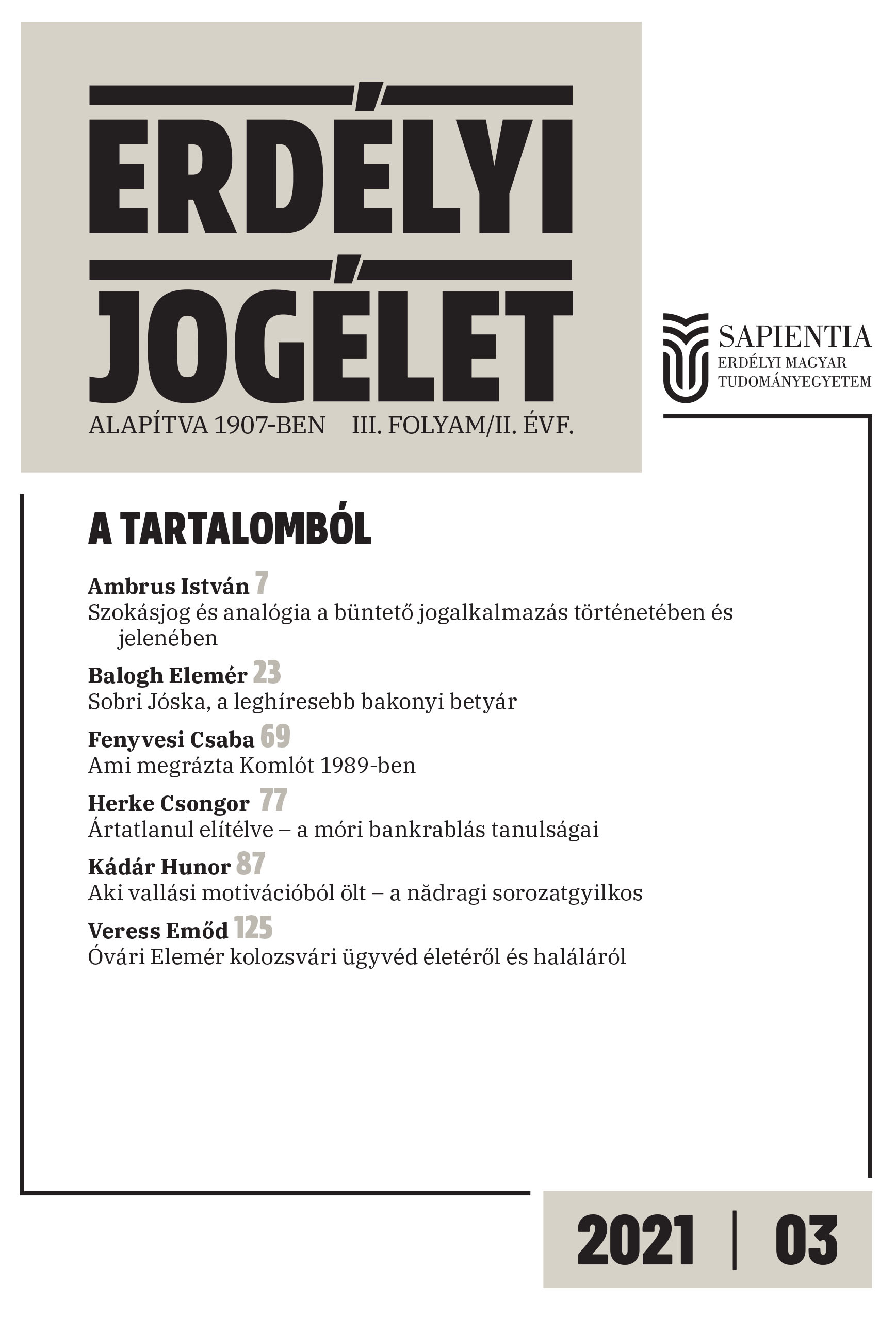A büntetőjog alkotmányos alapjai és gyakorlata, valamint a kisebbségi magyarság az 1918–1938 közötti Romániában
Constitutional Foundations and Practice of the Criminal Law and the Hungarian Minority in Romania between 1918 and 1940
Author(s): Zoltán József FazakasSubject(s): History of Law
Published by: Scientia Kiadó
Keywords: interbellum; Romania; constitutionalism; criminal law; nation-state; minorities; minority law; equality; freedom of press; freedom of speech; freedom of religion;
Summary/Abstract: Pursuant to the First World War, Romania’s territory increased, and thus it inherited a complex social, economic, and legal environment different from that of the predecessor states. The Romanian state’s response to these challenges is to be found in the political goal of building a homogeneous nation-state. This political agenda has had an impact on all areas of law, not only on legislation but also on the application of the law. The use of essentially ethnically neutral legal instruments of criminal law for state policy purposes can also be seen as an element of exclusionary nationality policy. The Romanian state’s actions have thus not only failed to resolve existing internal tensions but have also made the relations between the majority and minorities, as well as the possibility of consolidation impossible for the past century.
Journal: Erdélyi Jogélet
- Issue Year: IV/2021
- Issue No: 3
- Page Range: 49-67
- Page Count: 19
- Language: Hungarian

